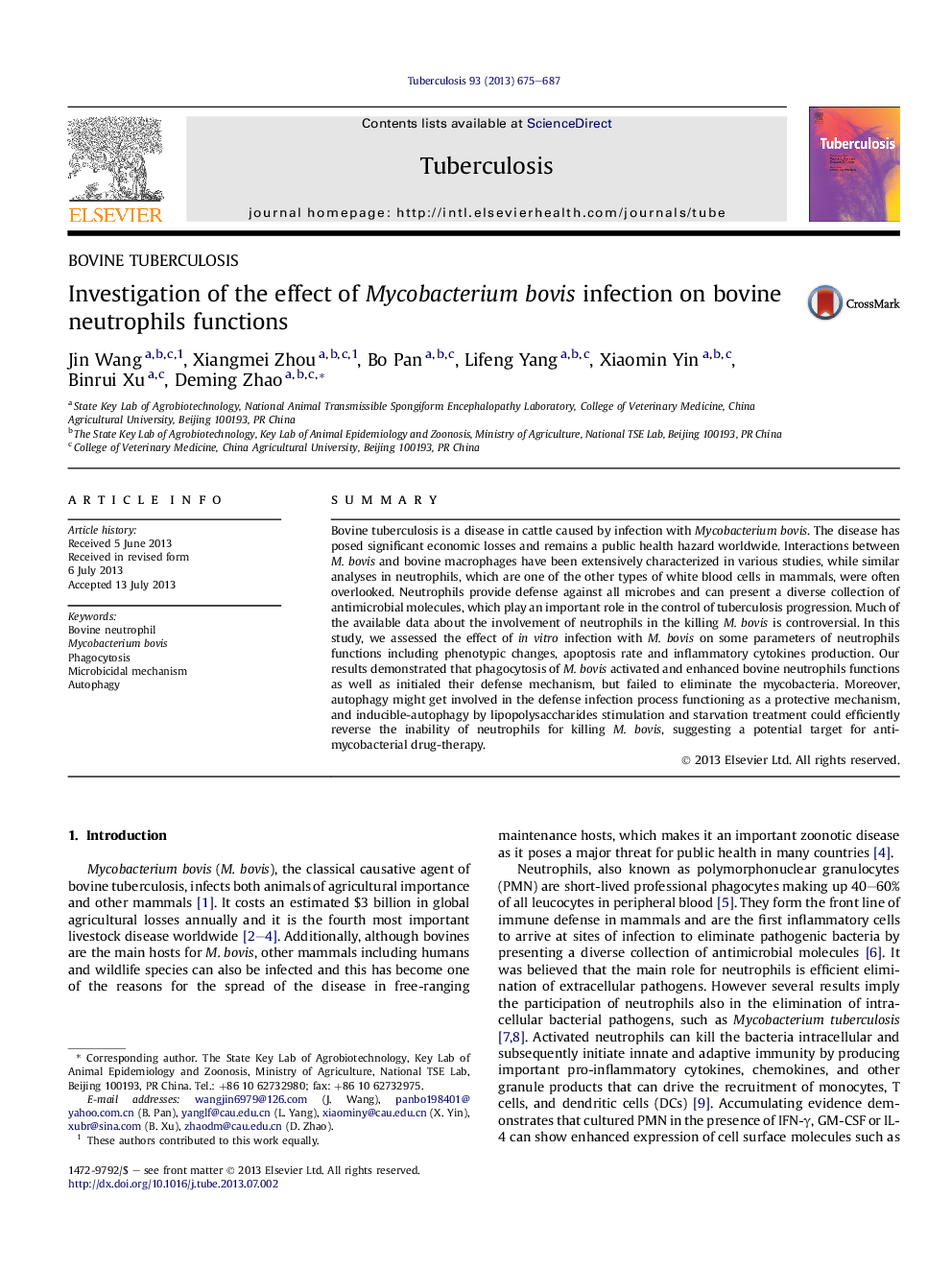| Article ID | Journal | Published Year | Pages | File Type |
|---|---|---|---|---|
| 2401417 | Tuberculosis | 2013 | 13 Pages |
SummaryBovine tuberculosis is a disease in cattle caused by infection with Mycobacterium bovis. The disease has posed significant economic losses and remains a public health hazard worldwide. Interactions between M. bovis and bovine macrophages have been extensively characterized in various studies, while similar analyses in neutrophils, which are one of the other types of white blood cells in mammals, were often overlooked. Neutrophils provide defense against all microbes and can present a diverse collection of antimicrobial molecules, which play an important role in the control of tuberculosis progression. Much of the available data about the involvement of neutrophils in the killing M. bovis is controversial. In this study, we assessed the effect of in vitro infection with M. bovis on some parameters of neutrophils functions including phenotypic changes, apoptosis rate and inflammatory cytokines production. Our results demonstrated that phagocytosis of M. bovis activated and enhanced bovine neutrophils functions as well as initialed their defense mechanism, but failed to eliminate the mycobacteria. Moreover, autophagy might get involved in the defense infection process functioning as a protective mechanism, and inducible-autophagy by lipopolysaccharides stimulation and starvation treatment could efficiently reverse the inability of neutrophils for killing M. bovis, suggesting a potential target for anti-mycobacterial drug-therapy.
